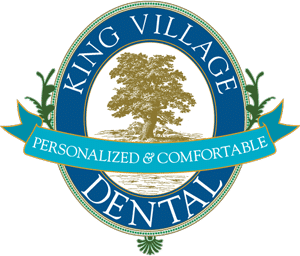Few things can be as painful as a dental emergency. Whether it’s an accident, sports injury, broken tooth, damaged bridge, or abscessed tooth, one thing is certain: There will be pain. You need an emergency dental visit.
🚨 Don’t Wait – Get Help Now!
Bleeding gums, excessive pain, or a swollen jaw from infection need immediate attention.
King Village Dental is open 7 days a week for dental emergencies.
Preparing for Dental Emergencies
Preparing before a dental emergency is the best way to get help quickly. You don’t want to spend time researching emergency dentists when you’re in pain with a swollen jaw or bleeding gum.
Preparing for a dental emergency involves some thought and research but it’s an easy way to ensure you get the help you need.
Essential Preparation Steps:
1. Get on board with a dentist that offers emergency dentistry
The best way to get emergency dental help is to find a dentist who offers it and become a patient. Good dental care means going for routine exams and cleanings twice a year, along with getting a yearly X-ray. It is something you should do so taking an extra step and finding a dentist that offers emergency care doesn’t have to be complicated.
It also helps emergency care if you go to the same dental office where you get all your oral care treatments. They will already have your records and likely know something about your previous care and dental issues.
It also helps with payments and insurance because you know they accept your insurance and about their payment options.
2. Have an emergency dental number handy
Keep your dentist’s emergency office number on your contact list for your cell phone or on an emergency numbers list in your home. Those who don’t have a regular dentist should find a dental provider ahead of time that offers walk-in emergency dental patients. Keep the number handy so you don’t waste time looking it up.
3. Have your insurance card on you
You are going to need your dental insurance information or government dental care program information whether you go to your dentist or to a walk-in emergency dental clinic. Keep a card with your member or client number on you at all times. Put it in your wallet for easy retrieval.
4. Be aware of what your insurance or government program pays
Dental insurance can be different with each company and government programs can pay for different services depending on whether it’s a program offered by a province or the Canadian Dental Care Program (CDCP).
Look at what your insurance or program pays for and the co-payments expected when it comes to emergency dental care. Understanding the details before it’s needed will make getting care easier and less stressful.
What to Do During An Emergency
Dental emergencies come in all types and times so your actions may vary depending on whether you or a loved one needs other medical care first or if other circumstances persist. Generally, these are good directives when something happens that requires emergency dental care.
🦷 Look for Missing Teeth
Teeth that are knocked out can sometimes be re-established. If possible, it’s good to collect any missing teeth and bring them with you to the dentist. Even those that can’t be reinserted can provide information to help repair the gum and replace missing teeth.
🩸 Stop Blood Flow
Put gauze, paper, or tissue over bleeding areas and apply pressure to stop the bleeding.
💊 Take Pain Reliever
Those who have minor injuries where they can swallow should take an over-the-counter pain reliever like Ibuprofen. Aspirin may cause more bleeding because it thins blood.
🏃♂️ Get to A Dentist
Go to an emergency dentist right away. Don’t try to wait until the morning if you have bleeding gums, excessive pain, or a jaw swollen from infection. It’s important to deal with these issues fast so an infection doesn’t start.
⚠️ Take Prescriptions as Directed
An emergency dentist will likely perform an X-ray to see the damage and do a physical exam. In most cases, they will give you a prescription to take to prevent infection. Make sure to fill it out right away and take all of it as prescribed. It’s important to finish the entire prescription.
Go to the Follow-Up Visit
Emergency dentists often will schedule a follow-up appointment during the day with your regular dentist if they are at the same practice. Otherwise, an emergency dentist will tell you to have your regular dentist follow up with care.
Don’t neglect making and going to a follow-up appointment. The follow-up appointment will ensure you are healing properly. Your dentist can also offer solutions for long-term effects of your problem like infections, mouth injury, and missing teeth.
Finally
Take your dental care as seriously as you would the rest of your physical care. You would go to an emergency medical facility for severe pain in another area of your body so don’t live with pain in your mouth! Emergency dental care is available so find a clinic that is convenient to you and use it when you need it.
Need Emergency Dental Care?
King Village Dental is open 7 days a week for emergency dental care.
We’re here when you need us most.

